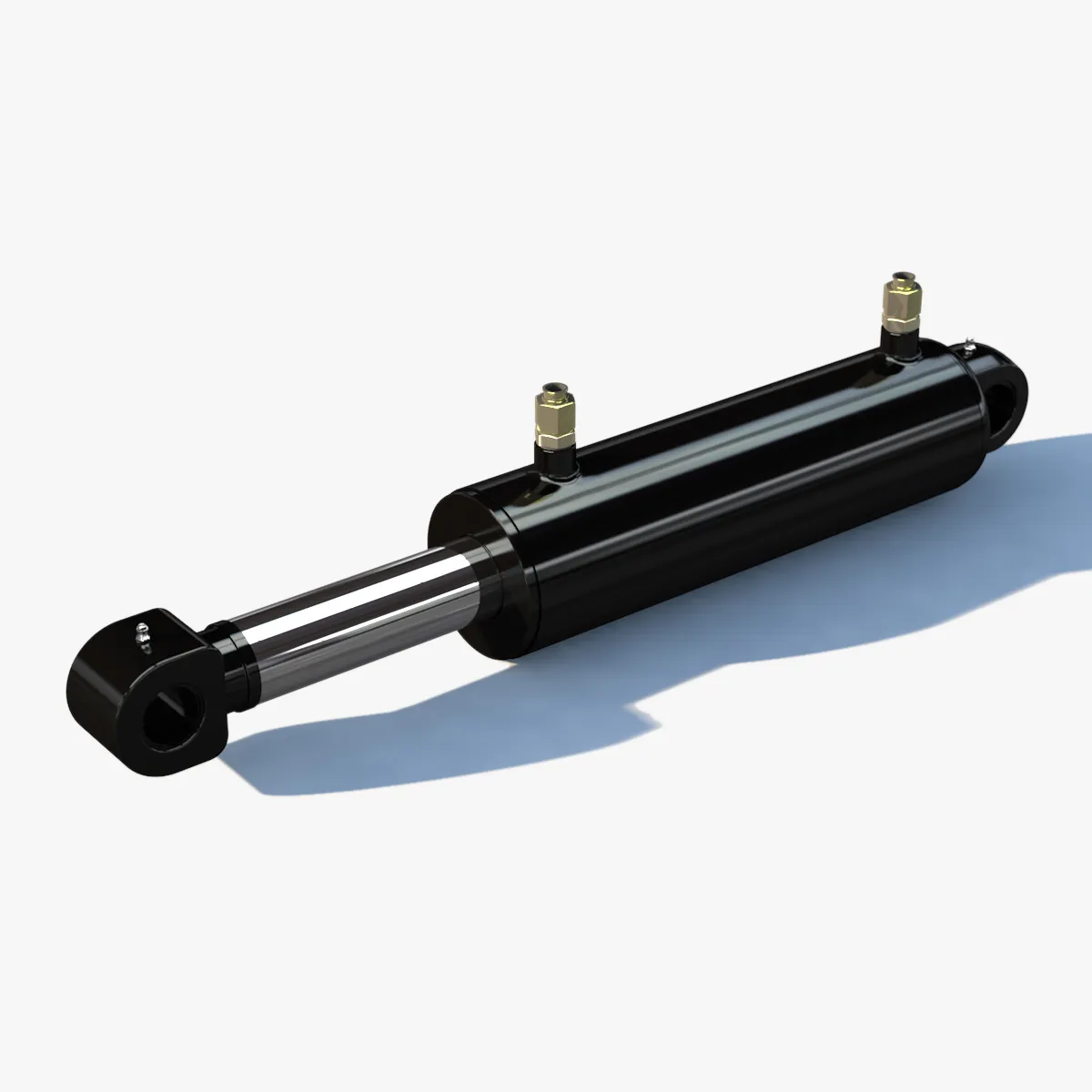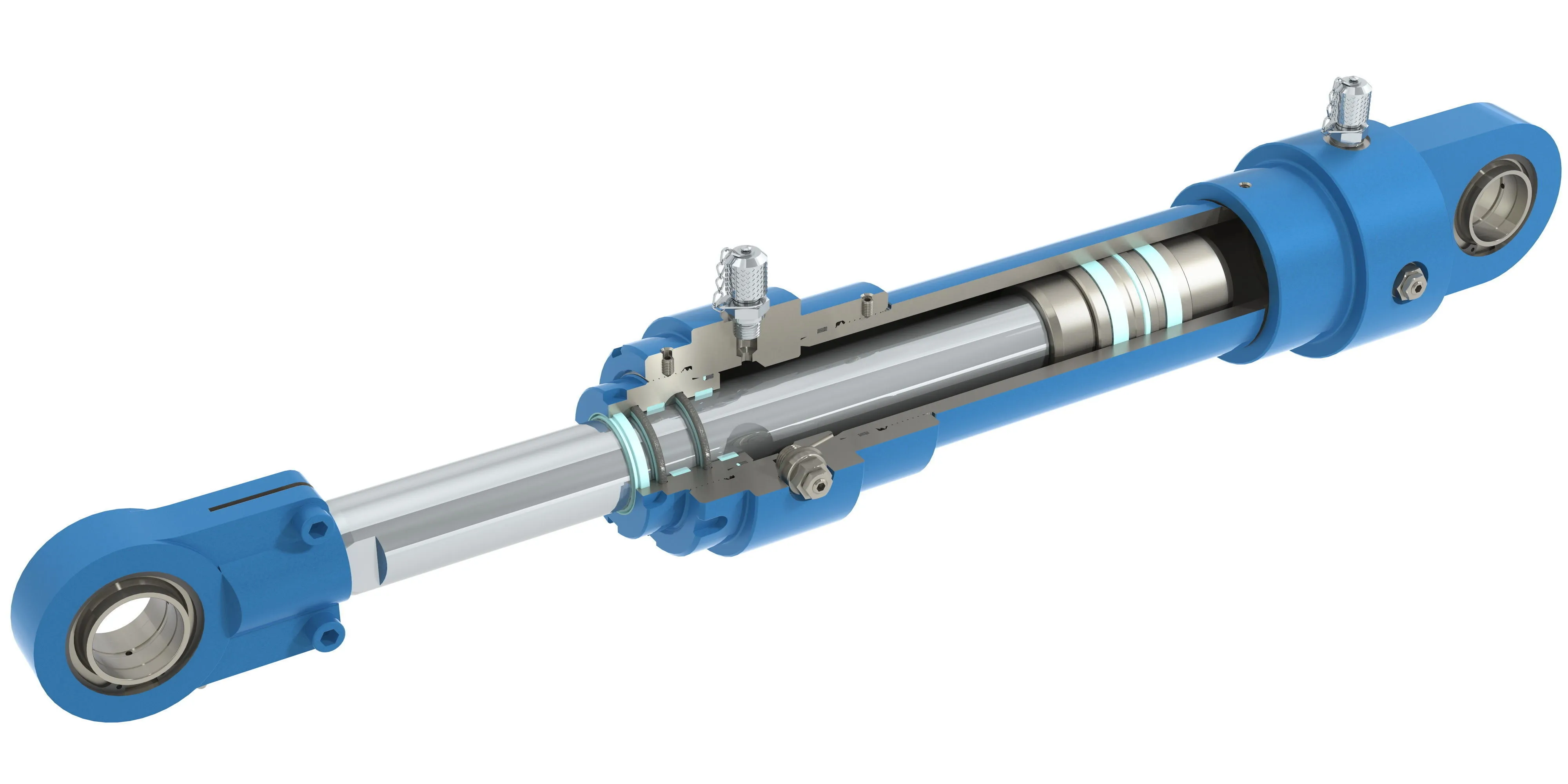Exploring the World of Industrial Hydraulic Cylinders in Pressing
Understanding Hydraulic Cylinders in Industrial Environments
Hydraulic cylinders are essential components in various industrial applications, providing the necessary force and motion for machines and equipment to operate efficiently. These cylinders use fluid power to generate linear motion, making them ideal for pressing, lifting, and moving heavy loads in manufacturing, construction, mining, agriculture, and other industries.
Key Components and Structure
A typical hydraulic cylinder consists of a cylinder barrel, piston, piston rod, seals, and hydraulic fluid. The cylinder barrel houses the piston, which moves back and forth within the barrel to generate force. Seals prevent fluid leakage, while hydraulic fluid transmits pressure to move the piston.
Principle Overview of Hydraulic Cylinder Operation

Hydraulic cylinders operate on the principle of Pascal’s law, which states that a change in pressure applied to a confined fluid is transmitted undiminished in all directions. When hydraulic fluid is pressurized, it exerts force on the piston, causing it to move and perform mechanical work.
Types of Hydraulic Cylinders
There are several types of hydraulic cylinders commonly used in industrial applications, each with unique features and benefits:
Single Acting Cylinder
A single-acting cylinder uses hydraulic pressure to extend the piston, but relies on an external force to retract it. These cylinders are suitable for applications where a load needs to be lifted or pushed in one direction.
Double Acting Cylinder
Double-acting cylinders use hydraulic pressure to extend and retract the piston, providing bi-directional force for more versatile applications. These cylinders are often used in pressing, clamping, and lifting operations.
Telescopic Cylinder
Telescopic cylinders consist of nested cylinders that extend and retract in a telescoping manner, allowing for a longer stroke length in a compact design. These cylinders are ideal for applications with limited space or varying stroke requirements.
Differential Cylinder
Differential cylinders feature two different sized pistons, creating a mechanical force imbalance that amplifies the output force. These cylinders are used in applications requiring high force output or precise control.
Top Five Advantages of Industrial Hydraulic Cylinders
1. High Force Output: Hydraulic cylinders can generate immense force, making them ideal for heavy-duty applications.
2. Precise Control: Hydraulic systems offer accurate positioning and speed control for enhanced productivity.
3. Compact Design: Hydraulic cylinders are compact and space-efficient, allowing for versatile installation options.
4. Durability: Hydraulic cylinders are built to withstand harsh industrial environments, ensuring long-lasting performance.

5. Cost-Effective: Hydraulic systems offer high efficiency and reliability, reducing maintenance and downtime costs.
Industries Using Hydraulic Cylinders
Industrial hydraulic cylinders find widespread use in various industries, including:
Manufacturing
In manufacturing, hydraulic cylinders are used in metal forming, stamping, and assembly processes to exert controlled force for shaping and joining components.
Construction
In construction, hydraulic cylinders power heavy machinery such as excavators, cranes, and bulldozers to perform tasks like lifting, pushing, and digging with precision.
Mining
In mining operations, hydraulic cylinders are integral to equipment like hydraulic shovels, drills, and haul trucks for extracting, transporting, and processing minerals efficiently.
Agriculture
In agriculture, hydraulic cylinders are employed in equipment like tractors, harvesters, and irrigation systems to perform tasks like plowing, harvesting, and watering crops with precision and efficiency.
Other Industrial Sectors
Hydraulic cylinders are also used in industries such as aerospace, automotive, and marine for various applications requiring heavy lifting, precise control, and reliable performance.
Selecting the Right Hydraulic Cylinder
When choosing an industrial hydraulic cylinder for a specific application, consider factors like load capacity, stroke length, bore size, operating pressure, and mounting options to ensure optimal performance and compatibility with the equipment.
Maintenance and Care of Hydraulic Cylinders
Regular maintenance is crucial for prolonging the service life of hydraulic cylinders. Inspect for leaks, lubricate moving parts, and clean the cylinder regularly to ensure smooth operation and prevent premature wear and damage.
Installation Guide for Hydraulic Cylinders
Proper installation of hydraulic cylinders involves aligning components, securing mounting points, and ensuring proper fluid connections. Follow manufacturer guidelines and industry best practices to install hydraulic cylinders safely and efficiently.
Maintenance Tasks for Hydraulic Cylinders
1. Cleaning: Regularly clean the exterior and internal components of hydraulic cylinders to remove dirt, debris, and contaminants that can impair performance.
2. Lubrication: Apply lubricants to moving parts and seals to reduce friction, prevent wear, and maintain smooth operation.
3. Wear Checking: Inspect seals, rods, and other components for signs of wear or damage, and replace worn parts to prevent fluid leaks and system failure.
Fault Diagnosis and Troubleshooting
Common problems with hydraulic cylinders include leaks, seal damage, piston misalignment, and fluid contamination. Diagnose issues by inspecting components, testing system pressure, and consulting manufacturer guidelines for troubleshooting steps.
Preventive Measures for Optimal Performance
To minimize potential problems and optimize the performance of hydraulic cylinders, follow these preventive measures:
– Regularly inspect for leaks and wear
– Monitor system pressure and fluid levels
– Implement proper maintenance and lubrication practices
– Train personnel on safe handling and operation
Choosing the Right Industrial Hydraulic Cylinder
When selecting an industrial hydraulic cylinder, consider factors like load requirements, operating conditions, space limitations, and compatibility with existing equipment. Consult with experts and conduct thorough research to ensure the cylinder meets the specific needs of your application.
Long-Tail Keywords and SEO Articles
Industrial hydraulic cylinder applications, hydraulic cylinder operation principles, selecting the right hydraulic cylinder
Company Profile
Our company is a leading manufacturer and wholesale distributor of hydraulic cylinders, offering a complete product line for various industrial applications. With professional expertise, international certifications, custom services, advanced production equipment, and dedicated after-sales support, we strive to deliver high-quality solutions that meet the needs of our customers.
